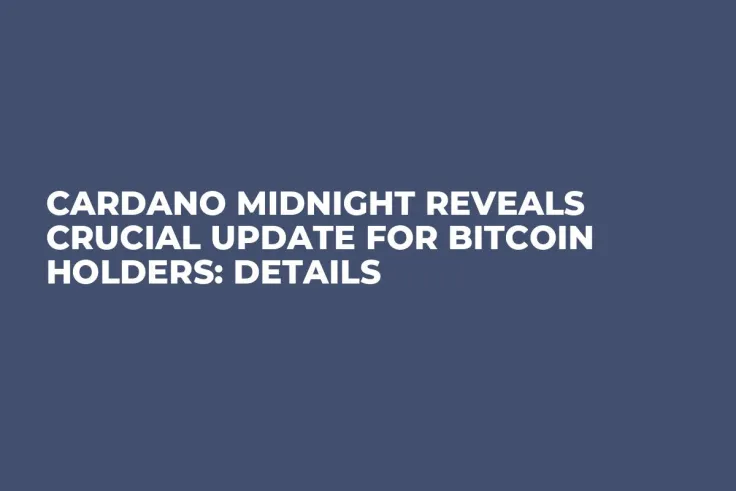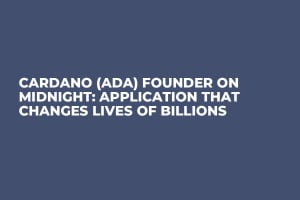
Disclaimer: The opinions expressed by our writers are their own and do not represent the views of U.Today. The financial and market information provided on U.Today is intended for informational purposes only. U.Today is not liable for any financial losses incurred while trading cryptocurrencies. Conduct your own research by contacting financial experts before making any investment decisions. We believe that all content is accurate as of the date of publication, but certain offers mentioned may no longer be available.
At the start of August, Midnight, a privacy-focused sidechain in the Cardano ecosystem, initiated its first token distribution phase for the NIGHT token for users or wallets that held at least $100 in crypto across eight blockchains, namely Bitcoin, Ethereum, Solana, BNB Chain, Cardano, Avalanche, XRP Ledger or Brave, as of a June 11 snapshot.
Shortly after the distribution began, a complexity issue affecting Bitcoin claims with Ledger devices was discovered, with the Midnight team stating it was aware of the problem and promised to provide an update once it was resolved.
The issue saw some Bitcoin accounts, which have multiple addresses, receive an error message that "no eligible addresses were found or not all eligible addresses are recognized."
In a most recent update, Midnight stated that the complexity issue with Ledger devices affecting Bitcoin claims has now been solved.
Previously, when trying to make a claim based on multiple eligible Bitcoin addresses controlled by the same Ledger-managed wallet, the portal would only recognize the first-used address, and only for the first Bitcoin account. Now, all eligible Bitcoin addresses managed by the same Ledger wallet can make claims.
For multiple eligible Bitcoin addresses connected to a Ledger device, an individual claim must be made for each address.
Cardano to rethink smart contract security
Cardano's Input Output recently revealed that it was rethinking smart contract security for the Cardano ecosystem.
The Cardano developer highlighted ongoing work on a set of tools that would support a more holistic and comprehensive lifecycle for Cardano development.
These tools will be released progressively throughout 2025, with formal verification targeting Plinth initially and expanding to support Aiken and other Cardano smart contract languages.
Each release will be accompanied by comprehensive documentation and examples intended to make advanced security techniques accessible to the entire Cardano developer community.


 Dan Burgin
Dan Burgin Alex Dovbnya
Alex Dovbnya Denys Serhiichuk
Denys Serhiichuk Caroline Amosun
Caroline Amosun